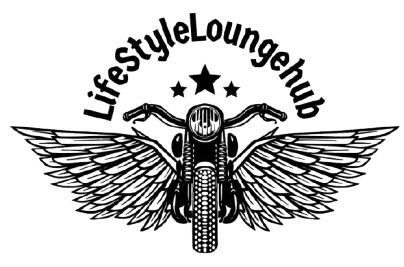John’s story is one of resilience, growth, and transformation. Following a profound loss, he found himself immersed in the depths of despair. However, through the journey of 在失落的创痛中成长 John not only navigated his grief but also emerged stronger, wiser, and more connected to himself and others. This article explores John’s inspiring path of personal development following trauma.
Understanding John’s Background
Before his loss, John was an active and vibrant individual. He thrived on social interactions, hobbies, and dreams for the future. However, the tragic event that changed everything left him feeling isolated and lost. Understanding where John came from is essential to appreciating his remarkable journey of healing and growth.
The Impact of Trauma: What Happened?
Trauma is often a life-altering experience, leaving individuals grappling with overwhelming emotions. For John, the traumatic event—losing a loved one—triggered intense feelings of grief, sadness, and confusion. Recognizing the severity of his trauma was the first step in his journey toward healing.
Defining Trauma and Its Effects
Types of Trauma
Trauma can take many forms, including:
- Acute Trauma: Resulting from a single event.
- Chronic Trauma: Stemming from repeated exposure to distressing events.
- Complex Trauma: Involving multiple traumatic experiences, often interpersonal in nature.
Each type affects individuals differently, making it crucial to address the specific nature of one’s trauma in the healing process.
Common Responses to Trauma
The responses to trauma can vary widely but often include:
- Emotional numbness
- Anxiety
- Depression
- Flashbacks Understanding these reactions helps individuals recognize that their feelings are valid and common.
Grief: A Natural Reaction to Loss
What is Grief?
Grief is the emotional suffering one feels after losing someone or something important. It’s a universal experience but deeply personal, affecting everyone differently.
Stages of Grief
Grief is often described in stages, though they don’t always occur in order:
- Denial
- Anger
- Bargaining
- Depression
- Acceptance
John experienced these stages as he grappled with his loss, finding his way through each one in his own time.
The Intersection of Grief and Trauma
Grief and trauma often intertwine, as the emotional responses to a traumatic event can amplify the grieving process. For John, understanding how these two elements affected each other was vital in his journey of 在失落的创痛中成长 John.
John’s Initial Struggles: Coping with Loss
Initially, John struggled significantly with his grief. Feelings of despair and isolation overwhelmed him, leading him to withdraw from the world he once loved. This phase of his journey highlighted the importance of acknowledging one’s pain rather than burying it.
Finding Resilience: The Turning Point
A pivotal moment in John’s journey came when he recognized his resilience. Through small acts of self-compassion and reaching out to others, he began to rebuild his life. This turning point was crucial, marking the transition from surviving to thriving.
Building a Support System
The Importance of Community
John realized that isolation would only deepen his pain. By reconnecting with friends and family, he began to understand the power of community in the healing process. Support systems play a vital role in recovery, offering empathy and encouragement.
Seeking Professional Help
Seeking professional help was another crucial step for John. Therapy provided him with tools to process his emotions and develop coping strategies. This decision underscored the importance of addressing mental health proactively.
Practicing Self-Care and Mindfulness
John began to prioritize self-care, incorporating mindfulness practices into his daily routine. Activities like meditation, journaling, and exercise helped him connect with his emotions and foster a sense of peace. This commitment to self-care proved essential in his journey of 在失落的创痛中成长 John.
Embracing Growth: Transforming Pain into Purpose
Through his experiences, John learned that pain can lead to profound growth. He began to view his trauma not just as a burden but as a catalyst for personal development. Embracing this mindset transformed his relationship with his grief, allowing him to find meaning in his experiences.
Sharing His Story: The Power of Vulnerability
By sharing his story, John discovered the healing power of vulnerability. Opening up about his journey allowed him to connect with others facing similar struggles, fostering a sense of community and understanding. This act of sharing became a vital part of his healing process.
Lessons Learned: Insights from John’s Journey
John’s journey offers valuable insights into coping with loss and trauma:
- Acknowledge your feelings; they are valid.
- Don’t hesitate to seek support.
- Embrace self-care as a priority.
- Recognize resilience within yourself.
Inspiration for Others: How to Begin Your Journey
For those experiencing trauma or loss, John’s story serves as a reminder that healing is possible. Begin by acknowledging your pain, reaching out for support, and exploring self-care practices that resonate with you. Remember, every journey is unique—embrace yours at your own pace.
Conclusion: The Ongoing Journey of 在失落的创痛中成长 John
John’s story of 在失落的创痛中成长 John exemplifies the human capacity for resilience and growth. While the pain of loss is undeniable, it can also lead to profound personal development. By acknowledging his grief and embracing his journey, John transformed his pain into purpose, inspiring others to do the same.
FAQs about Trauma and Personal Growth
- What does 在失落的创痛中成长 John mean?
It translates to “growing through the pain of loss,” highlighting the potential for personal growth after experiencing trauma. - How can I cope with my grief?
Acknowledge your feelings, seek support from friends or professionals, and practice self-care activities that nurture your well-being. - Is it normal to feel overwhelmed after a loss?
Yes, overwhelming feelings are a common response to grief. It’s important to give yourself permission to feel and process these emotions. - What are some effective self-care practices?
Self-care can include activities like meditation, exercise, journaling, spending time in nature, or engaging in hobbies you enjoy. - How can sharing my story help in healing?
Sharing your story fosters connection and empathy, allowing you to process your experiences and realize you are not alone in your journey.














Leave a Reply